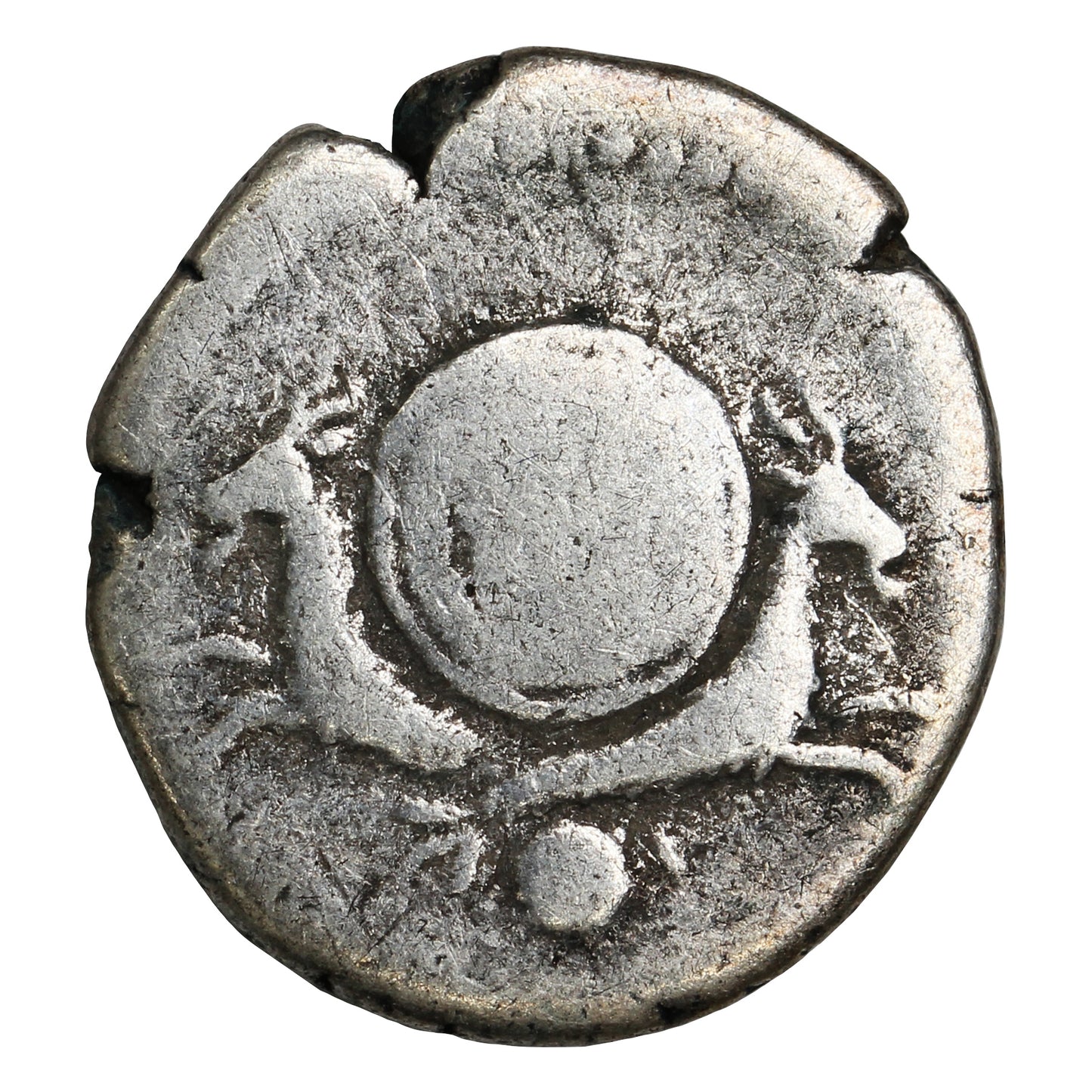Colonial Acres Coins
SKU: SKU:AC-0355
Ancient Rome 80-81AD "Death Issue" Titus - Divus Vespasian Silver Denarius F-VF (F15)
Ancient Rome 80-81AD "Death Issue" Titus - Divus Vespasian Silver Denarius F-VF (F15)
Regular price
$166.25
Regular price
$175.00
Sale price
$166.25
Unit price
per
We buy at $0.00
◎ 1 Available
Couldn't load pickup availability

FREE SHIPPING OVER $500
Ancient Rome 80-81AD "Death Issue" Struck Under Titus Divus Vespasian Silver Denarius F-VF (F15)
Titus Flavius Vespasianus (39–81 CE) was the eldest son of Vespasian and the second emperor of the Flavian dynasty, ruling from 79 to 81 CE. Before becoming emperor, he gained fame as a general for leading the Roman forces that captured Jerusalem in 70 CE, ending the Jewish revolt and destroying the Second Temple. As emperor, Titus was known for his generosity, clemency, and concern for the welfare of the people, especially during crises such as the eruption of Mount Vesuvius in 79 CE and a subsequent fire in Rome. Though his reign was short, Titus earned a reputation as a just and effective ruler, celebrated by historians for his humane leadership and the stability he maintained following his father’s pragmatic rule. Titus died in year 81, his last words allegedly "I have made but one mistake."
Divus Vespasian refers to the deified status of Vespasian after his death in 79 CE. In Roman tradition, emperors who had ruled successfully and were honored by the Senate could be officially recognized as gods, or divi. Vespasian’s deification celebrated his role in restoring stability to the empire after the chaotic Year of the Four Emperors and his achievements as a general and administrator. As Divus Vespasian, he was worshipped in temples and commemorated in coins, reinforcing the authority and prestige of the Flavian dynasty while serving as a model of imperial virtue for his successors.
Obverse: Laureate head of Divus Vespasian, facing right.
Reverse: Capricorns, back to back and facing left and right, supporting a round shield inscribed with SC, and a globe below.
Emperor: Titus (79-81)
Composition: Silver
Weight: Approx. 3 g
Diameter: 18 mm
Mint: Rome
Titus Flavius Vespasianus (39–81 CE) was the eldest son of Vespasian and the second emperor of the Flavian dynasty, ruling from 79 to 81 CE. Before becoming emperor, he gained fame as a general for leading the Roman forces that captured Jerusalem in 70 CE, ending the Jewish revolt and destroying the Second Temple. As emperor, Titus was known for his generosity, clemency, and concern for the welfare of the people, especially during crises such as the eruption of Mount Vesuvius in 79 CE and a subsequent fire in Rome. Though his reign was short, Titus earned a reputation as a just and effective ruler, celebrated by historians for his humane leadership and the stability he maintained following his father’s pragmatic rule. Titus died in year 81, his last words allegedly "I have made but one mistake."
Divus Vespasian refers to the deified status of Vespasian after his death in 79 CE. In Roman tradition, emperors who had ruled successfully and were honored by the Senate could be officially recognized as gods, or divi. Vespasian’s deification celebrated his role in restoring stability to the empire after the chaotic Year of the Four Emperors and his achievements as a general and administrator. As Divus Vespasian, he was worshipped in temples and commemorated in coins, reinforcing the authority and prestige of the Flavian dynasty while serving as a model of imperial virtue for his successors.
Obverse: Laureate head of Divus Vespasian, facing right.
Reverse: Capricorns, back to back and facing left and right, supporting a round shield inscribed with SC, and a globe below.
Emperor: Titus (79-81)
Composition: Silver
Weight: Approx. 3 g
Diameter: 18 mm
Mint: Rome









